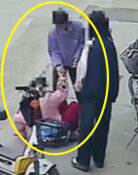Illegal processing of tobacco leaves drove people in small town to cancer
Illegal processing of tobacco leaves drove people in small town to cancer
Posted November. 15, 2019 07:52,
Updated November. 15, 2019 07:52
The final investigative results by the South Korean government revealed that carcinogens released from a fertilizer plant near a rural village called Jangjeom in Iksan, North Jeolla Province have caused 22 cases of cancer, 14 of which led to deaths, among 99 residents of the village. This is the first case that the South Korean government acknowledged the epidemiological relationship to non-specific conditions, such as cancer, which can be caused by multiple factors. So far, the government only recognized such relationship in the case of diseases with more clear causes, such as pulmonary fibrosis from humidifier disinfectant and malignant mesothelioma from asbestos.
The Ministry of Environment held a final reporting session on the investigation into health impact on Jangjeom village residents at the Training Center for Important Intangible Cultural Properties in Iksan on Thursday and revealed such findings. The town’s residents who had enjoyed peaceful life started to develop cancer as a fertilizer plant called “Geumgang Nongsan” began operation about 500 meters away from the village in 2001. Until the plant closed in April 2017, one in five residents developed cancer of various types, including liver, skin, gallbladder, stomach, lung, and breast cancer.
The plant produced organic fertilizer using the dregs of tobacco leaves and food waste. The dregs are supposed to be used only as compost through the fermentation process, however, it illegally turned them into organic fertilizer by drying them at high temperatures over 300 degrees Celsius, which was pointed out as the direct cause for cancer according to the Environment Ministry. The nearby residents were exposed with no protection to the carcinogens produced in the high-temperature drying process spreading in the air. The residents in Jangjeom village showed two to 25 times higher cancer rates compared to the national standard population samples.
The ministry will provide medical costs and compensation for the damage to residents with cancer. The plant in question is not able to recompense as it bankrupted. The residents are demanding apologies and compensation to the victims from the Korea Tobacco & Ginseng Corporation that supplied the dregs of tobacco leaves, as well as the Iksan city government, the North Jeolla Province government, and the central government for poor management and supervision.
kej09@donga.com · minpress@donga.com







